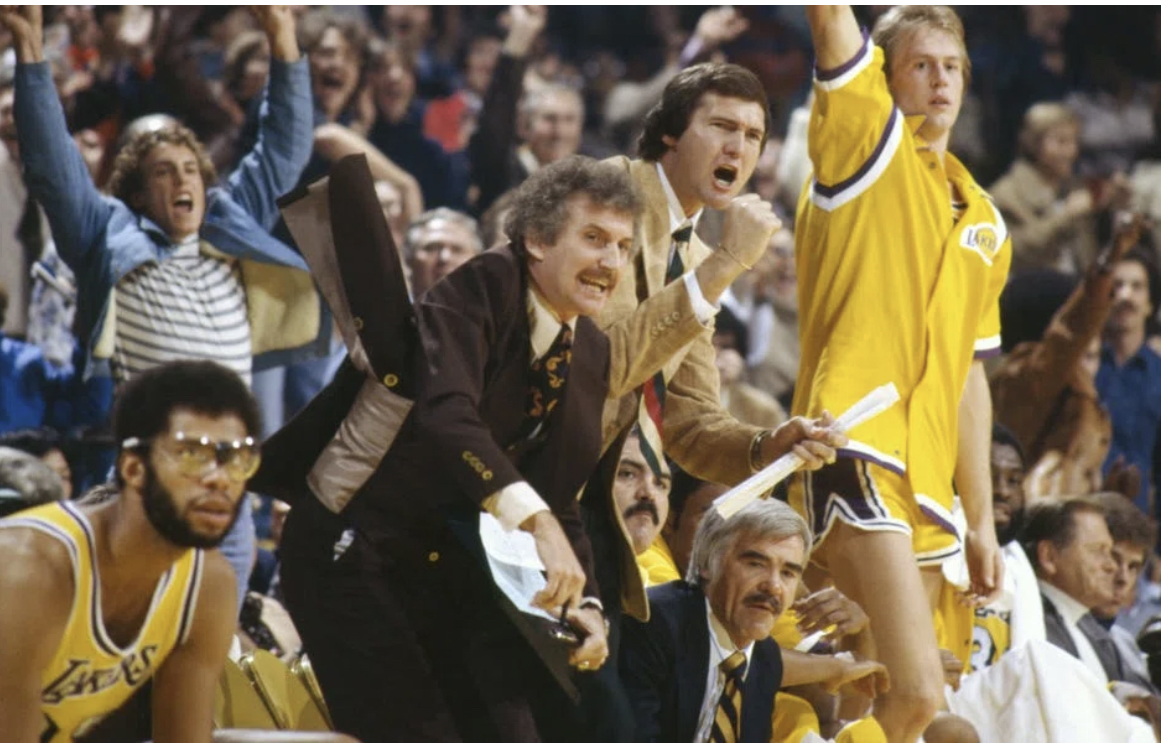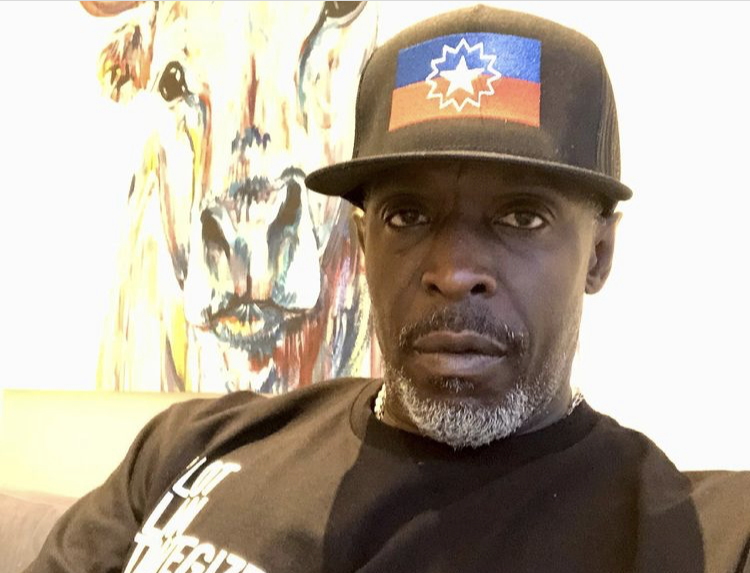When LA Dodgers vet Josh Beckett was a young fireballer known for his big-game gall, he executed his brilliance like Jamie Lannister from HBO’s hit show Game of Thrones. At the tender age of 23 as a cornerstone of a talented Florida Marlins franchise, Beckett won the 2003 World Series MVP Award with two strong performances on three days rest.
Beckett helped the Marlins dust off the heavily-favored Bronx Bombers, who were ruling the baseball world with an iron first and winning four World Series since 1996. During Game 6 at Yankee Stadium, Beckett tossed a complete game, shutout, striking out nine and slaying baseball’s kings in improbable and emphatic fashion to clinch the series. That’s like T.I. putting the beats on Money Mayweather in a ring with no goons to intercede on anyone’s behalf.
Beckett’s performance in that Autumn Classic forever immortalized him as a Yankees killer. A Kingslayer. Yankee lovers and haters alike give him major props for carrying the mightiest sword and striking the most significant blows in the Marlin’s upset win against an “unbeatable” squad.
Similar to Lannister’s character in the popular HBO saga, Beckett’s career has gone through various phases and metamorphosis since his defining moment. Until he threw his first career no-hitter in Sunday's 6-0 win over the Philadelphia Phillies, Beckett hadn’t been able to recapture the same consistent brilliance he bottled up like a case of local Nutcracker and poured all over the Yanks back in ‘03.
The no-hitter was the 21st in Dodgers franchise history and the most for any MLB Team. It was the Dodger’s first since Hideo Nomo's no-no at Colorado on Sept. 17, 1996. The 34-year-old vet was vintage as he walked just three heads and K'd six in tossing a career-high 128th pitches.
On the flipside, the Phillies have been no-hit 19 times which is also the most in MLB history. A perfect match evidently, and the perfect time for Beckett to have a real career renaissance. The win improved Beckett's record to 3-1 on the season and lowered his ERA to an impressive 2.43. The right-hander—with a rep for inconsistent performance—has been far better than expected in the wake of a woeful 2013 campaign (0-5, 5.13 ERA) that ended with a major surgical procedure to repair thoracic outlet syndrome.
“It’s special and definitely something you think about throughout your career,” Beckett said on MLB Network, following the game. “Very few people have been able to do it. You don’t think at this point in your career that you would be able to do this. You need a good defense behind you. A little luck sprinkled in there and making certain pitches when you have to make those pitches. “
We are witnessing Beckett’s career come full circle. He jumps into some elite company as having compiled the fifth most starts in an MLB career before throwing a no-hitter. The others are "El Presidente" Dennis Martinez (400 starts before his no-hitter on July 28, 1991), Tom "Terrific" Seaver (395 starts before his first no-hitter on 6/16/78),Toronto Blue Jays ace Dave Stieb (275 career starts before throwing no-no on Sept. 2, 1990) and Yankees/Mets legend David Cone, who threw his first no-hitter (a perfect game on July 18th, 1999) over a decade after launching his prolific career with the Coke City Boys in ‘87.
The studs dominating that list speak to Beckett’s longevity as a pitcher and how – despite his ups and downs – he’s maintained the ability to produce such a gem.
Transform or Terminate
Back in the days, Beckett was a force to be reckoned with, and at times, one of baseball’s premier hurlers, but his Marlins career didn’t take off as expected and he completed his tenure with a 41-34 record and 3.46 ERA. There were some in the Marlins organization who felt Beckett’s stuff was declining and in 2005, the burly hurler was traded to the Red Sox as one of several prominent veterans the Marlins traded in what has become their traditional post-success clearinghouse.
In 2006, Beckett signed a three-year, $30 million contract extension with a $10 million club option for 2010 and finished his first season in Beantown with a record of 16–11 and a robust 5.01 ERA. He did pitch over 200 innings for the first time in career, but he gave up 191 hits and struck out just 158 batters while walking 74. Further signs of Beckett’s velocity erosion was the 36 home runs he allowed, tied for second most in the majors.
Throughout baseball history, supreme power arms inevitably come to a crossroads. Once a young, heat-hissing stud gains some MLB mileage, he begins to lose velocity. Slight riffs in location transform pitches that hitters would miss or pop up, into colossal blasts that end up in the second level. The pitcher’s MLB survival often depends on his ability to change his pitching style, utilize his scouting reports and elevate the mental and technical aspects of his game.
The only pitcher that immediately comes to mind, who maintained his fireball status into his late 30’s and even early 40s (without the use of PEDS) is the incomparable Nolan Ryan. The Texas Tornado (I’m not talking about wrestler Kerry Von Erich) was pushing 50 and still blowing the gun at about a buck. At the age of 44 he struck out 203 victims in 173 innings pitched for the Texas Rangers in 1991. He struck out 301 dudes in a season at age 42 !
The more common road traveled is a total transformation in pitching psyche. You have to go from a “kick in the door waving the 44” hurler to a backdoor B-n-E kind of jewel thief. Beckett’s no freak of nature like fellow-Texan “The Ryan Express.” And even Nolan added a splitter to his arsenal and his curveball and circle change was as debilitating a pitch as his unrivaled heater.
Beckett’s maturity and ability to deal with that truth produced a 2007 season for the ages. He began implementing more breaking balls into his repertoire, to keep hitters off balance. He threw fewer fastballs. At the same time, he began learning how to locate his pitches with pinpoint accuracy rather than simply try to power the ball past hitters. Consequently, he reduced his walks and home runs allowed by nearly half and became one of six Red Sox pitchers in history to win their first seven starts.
Beckett posted a sick 12–2 record by the All-Star break and became the first pitcher to win 20 games in a season since 2005, posting a record of 20–7, a 3.27 ERA, 194 strikeouts, a 1.14 WHIP, and only 40 walks and 17 home runs allowed.
Once the Red Sox reached the postseason, Beckett was on a familiar stage and he definitely turned back the clock using his newfound pitching steez. Beckett's 2–0 record and 1.93 ERA against the Cleveland Indians in the ALCS earned him the 2007 ALCS MVP Award, and in typical workhorse fashion the righty from Spring, Texas started and won the first game of the ‘07 WS against the red-hot Colorado Rockies, a team that had won 21 of 22 games during a stretch in September. Beckett pitched seven innings, allowing 1 run on six hits, whiffing nine batters. Boston would go on to sweep the Rockies in the series.
However, like his Marlins career, JB’s Boston career would end on a sour note. As Sean Sylver of bosoxinjection.com so eloquently put it:
“But the following five seasons were a laundry list of injuries and unfulfilled expectations for the supposed anchor of the pitching staff on a Red Sox team built to win. As easily as Beckett made two All-Star teams during that time, he wilted down the stretch, flamed out in the playoffs, and was ineffective for chunks of time due to physical issues.”
After the epic collapse of 2011, manager Terry Francona became the scape goat and was fired. Bobby Valentine was brought in and things got worse, culminating with one of those Allen Iverson “We talkin' about practice” moments—the infamous “fried chicken ‘n beer” story, in which Red Sox veteran pitchers Beckett, Jon Lester and John Lackey ate fried chicken, drank beer and played video games in between innings. A mass exodus followed and Beckett’s overall deteriorating attitude made him part of the problem moving forward and Boston placed him on waivers. In the blink of an eye, he went from Boston Brave to Beantown’s bitch.
The Dodgers scooped him up as insurance; A proven veteran whose reputation had taken a hit, but was battle-tested, nonetheless. Beckett has new life, with a new talented team, where he isn’t in the Top 10 most known players on the team. Anything he contributes is considered a bonus. He can continue to work on his craft as a veteran pitcher, share his experiences – the good and bad – with young cats like Clayton Kershaw, who have the goods, but haven’t slayed any kings yet. Just call it “The Resurrection.”
There’s a purpose for Josh Beckett and further growth ahead. He has 14 MLB seasons under his wing, but he’s still got the big-game flame. He’s been humbled, which is good. And barring injury, his potential as another bonafide postseason weapon for the Dodgers is nothing to be ignored.



